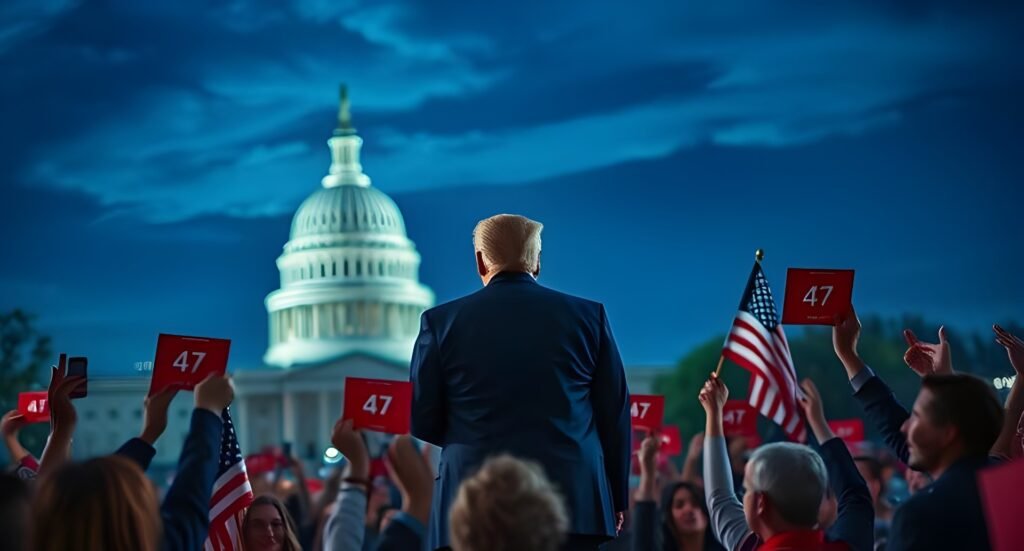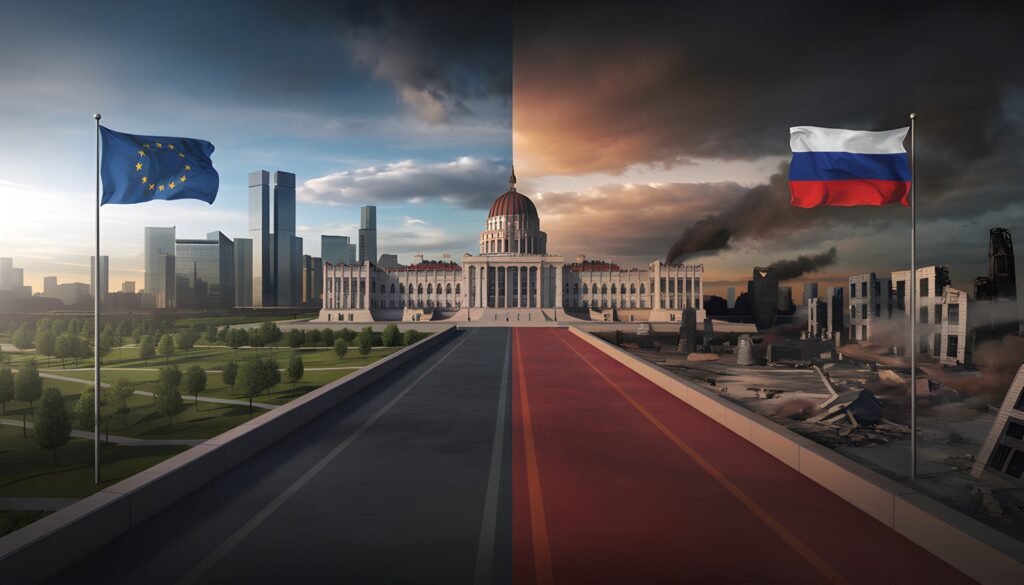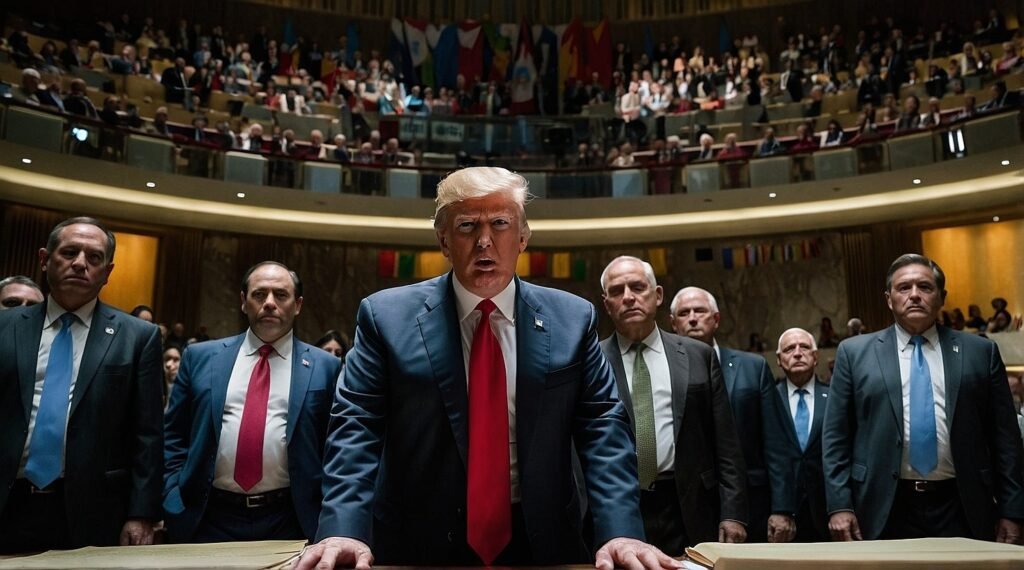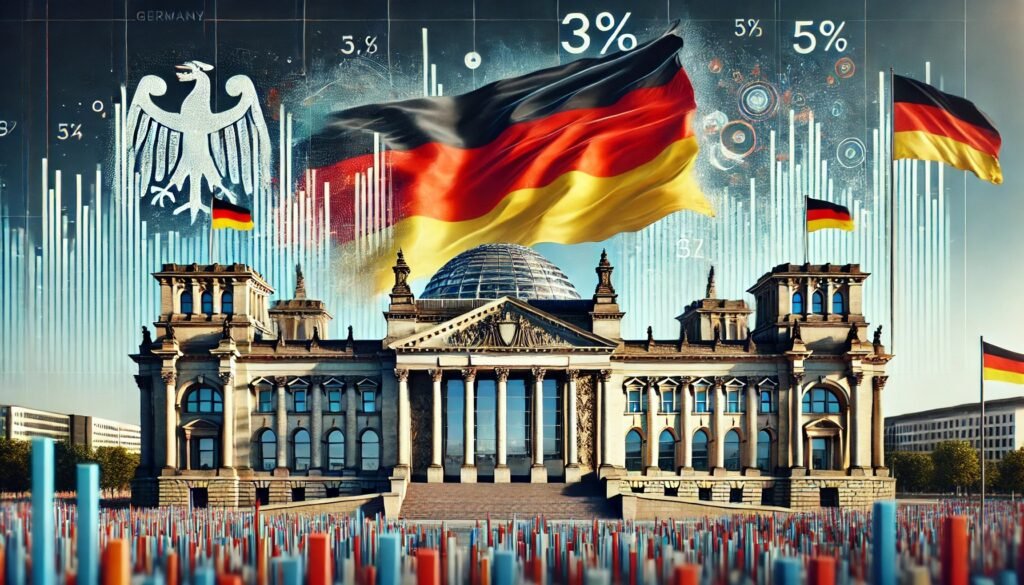|
Getting your Trinity Audio player ready...
|
In recent years, nationalist movements and far-right extremist parties have gained significant traction across the globe. These movements, often fueled by economic uncertainty, immigration concerns, and disillusionment with traditional political elites, have reshaped the political landscape in numerous countries. From Europe to the Americas and Asia, nationalist parties are influencing elections, policy-making, and social discourse, raising concerns about democracy, human rights, and global stability.
What is Nationalism?
Nationalism is a political ideology that emphasizes the interests, culture, and identity of a particular nation, often placing them above those of other nations or international institutions. It can manifest in various forms, from civic nationalism, which promotes unity based on shared values and democratic principles, to ethnic nationalism, which defines national identity based on ancestry, language, or religion. While nationalism can strengthen social cohesion and inspire patriotism, it can also lead to exclusionary policies, xenophobia, and conflicts when taken to an extreme.

Pros:
The advantage of nationalism is that it can promote a sense of unity and national pride, fostering a collective identity among citizens. When applied in a moderate and inclusive manner, nationalism can drive economic self-sufficiency, strengthen civic participation, and preserve cultural heritage.
Cons and National Security Concerns:
However, nationalism often carries significant drawbacks, especially when it fosters exclusionary policies or authoritarian governance.
- Xenophobia and Discrimination: Excessive nationalism can lead to the marginalization and suppression of minority rights, fostering an environment of exclusion and intolerance.
- Economic Isolation: Nationalist policies can encourage economic self-sufficiency at the cost of weakened global trade relationships, potentially leading to economic downturns.
- Militarization and Conflict: Extreme nationalist ideologies can push nations toward militarization, increasing tensions with neighboring states and escalating geopolitical conflicts.
- Undermining International Cooperation: Nationalist-driven policies can weaken collaboration on critical global issues, such as climate change, human rights, and economic stability.
- Rise of Radical Movements: In extreme cases, nationalist ideologies inspire violence and far-right radical movements, heightening domestic and international threats.
- Increased Risk of War: Nationalist rivalries and territorial disputes can lead to escalations in military aggression, raising the danger of regional wars and even global conflict, as history has shown in both World War I and World War II.

Europe
Europe has seen a dramatic rise in nationalist parties, many of which have secured parliamentary seats and even entered governing coalitions. In countries such as France, Germany, Italy, Hungary, and Romania, far-right parties have capitalized on anti-immigration rhetoric and Euroskeptic sentiments.
- France: Marine Le Pen’s National Rally (Rassemblement National) has positioned itself as a formidable force in French politics, challenging mainstream parties and nearly securing the presidency in recent elections.
- Germany: The Alternative for Germany (AfD) has gained momentum, leveraging dissatisfaction with immigration policies and the European Union to increase its voter base, despite concerns over extremist rhetoric and connections to neo-Nazi groups.
- Italy: Prime Minister Giorgia Meloni’s Brothers of Italy party, rooted in post-fascist ideology, has brought nationalist policies to the forefront of Italian governance.
- Hungary & Poland: Leaders like Viktor Orbán and the Law and Justice Party (PiS) have embraced nationalist policies, eroding democratic institutions and clashing with the European Union over rule-of-law concerns.
- Romania: The far-right Alliance for the Union of Romanians (AUR) has gained considerable influence in Romanian politics, securing a significant percentage of parliamentary seats in recent elections. The party, known for its nationalist rhetoric and opposition to progressive EU policies, has sparked controversy with its anti-immigration and Euroskeptic stance. AUR has been involved in multiple protests against government measures and has been accused of promoting conspiracy theories and historical revisionism.
The United States
In the United States, nationalist rhetoric has played a defining role in modern politics, particularly with the rise of “America First” ideology. President Donald Trump’s movement, which prioritizes economic nationalism and strict immigration controls, has influenced the Republican Party’s trajectory, leading to increased polarization and a surge in far-right extremism. The January 6, 2021, attack on the U.S. Capitol underscored the dangers of radical nationalism, as extremist groups sought to challenge democratic institutions.
Latin America
In Latin America, nationalist leaders have risen amid economic crises and political corruption scandals. Leaders such as Jair Bolsonaro in Brazil and Nayib Bukele in El Salvador have embraced strongman tactics, challenging democratic norms under the guise of national security and economic stability. While some supporters argue that their policies address crime and economic hardships, critics warn of growing authoritarian tendencies and weakened democratic institutions.
Asia
Across Asia, nationalist movements have gained traction, often intertwined with ethnic and religious identity politics.
- India: Prime Minister Narendra Modi’s Bharatiya Janata Party (BJP) has promoted Hindu nationalism, leading to concerns over minority rights and rising tensions with religious and ethnic groups.
- China: The Chinese Communist Party (CCP) has intensified nationalist rhetoric, particularly regarding Taiwan and territorial disputes, fueling tensions with neighboring countries and the West.
- Myanmar: The Rohingya crisis has highlighted the dangers of nationalist extremism, as military-backed groups have persecuted ethnic minorities under the banner of national unity.
What Comes Next?
The rise of nationalism and extremist parties requires a global response that upholds democratic values while addressing the underlying issues fueling these movements. Governments, civil society, and international organizations must promote inclusive policies, counter misinformation, and strengthen democratic institutions to prevent the spread of extremist ideologies.
The world faces a critical moment: will it embrace cooperation and democratic resilience, or succumb to the perils of nationalism and division? The answer lies in the collective actions of citizens, policymakers, and global leaders.
Let us know your thoughts in the comments below. How do you see nationalist movements shaping the future of your country?










Vibracion del motor
Equipos de calibración: esencial para el operación estable y productivo de las máquinas.
En el mundo de la ciencia actual, donde la eficiencia y la seguridad del sistema son de gran relevancia, los aparatos de equilibrado tienen un tarea esencial. Estos sistemas adaptados están diseñados para balancear y regular partes giratorias, ya sea en herramientas productiva, transportes de transporte o incluso en aparatos domésticos.
Para los especialistas en conservación de aparatos y los técnicos, trabajar con dispositivos de equilibrado es fundamental para promover el rendimiento suave y seguro de cualquier aparato móvil. Gracias a estas alternativas avanzadas avanzadas, es posible minimizar notablemente las movimientos, el estruendo y la esfuerzo sobre los soportes, mejorando la longevidad de partes importantes.
Igualmente relevante es el tarea que desempeñan los sistemas de equilibrado en la atención al consumidor. El asistencia experto y el mantenimiento permanente utilizando estos aparatos habilitan dar prestaciones de excelente nivel, incrementando la bienestar de los compradores.
Para los propietarios de emprendimientos, la financiamiento en unidades de balanceo y dispositivos puede ser clave para aumentar la efectividad y productividad de sus equipos. Esto es especialmente significativo para los inversores que gestionan reducidas y modestas negocios, donde cada elemento importa.
Asimismo, los sistemas de calibración tienen una amplia uso en el área de la protección y el supervisión de estándar. Habilitan encontrar probables problemas, reduciendo intervenciones onerosas y averías a los equipos. Además, los datos generados de estos dispositivos pueden emplearse para optimizar procesos y incrementar la reconocimiento en motores de investigación.
Las áreas de implementación de los aparatos de ajuste comprenden múltiples sectores, desde la producción de vehículos de dos ruedas hasta el monitoreo ambiental. No afecta si se habla de importantes producciones productivas o modestos espacios domésticos, los dispositivos de ajuste son fundamentales para promover un funcionamiento efectivo y sin presencia de interrupciones.
On this platform, you can access a great variety of slot machines from famous studios.
Users can try out retro-style games as well as modern video slots with vivid animation and exciting features.
If you’re just starting out or a casino enthusiast, there’s a game that fits your style.
online games
The games are ready to play round the clock and optimized for PCs and mobile devices alike.
No download is required, so you can start playing instantly.
Site navigation is user-friendly, making it quick to browse the collection.
Sign up today, and discover the excitement of spinning reels!
I used to think following instructions was enough. The system moves you along — you don’t question the process. It felt clean. But that illusion broke slowly.
Then the strange fog. I blamed my job. And deep down, I knew something was off. I read the label. No one had warned me about interactions.
cenforce 200 india
It finally hit me: one dose doesn’t fit all. The reaction isn’t always immediate, but it’s real. Reactions aren’t always dramatic — just persistent. Still we don’t ask why.
Now I pay attention. Not because I don’t trust science. I take health personally now. Not all doctors love that. I’m not trying to be difficult — I’m trying to stay alive. The turning point, it would be keyword.
La montre connectée Garmin fēnix® Chronos représente un summum de luxe avec des matériaux premium comme le titane Grade-5 et connectivité avancée .
Conçue pour les sportifs , elle propose une polyvalence et durabilité extrême, idéale pour les aventures en extérieur grâce à ses modes sportifs.
Grâce à son autonomie allant jusqu’à plusieurs jours selon l’usage, cette montre reste opérationnelle dans des conditions extrêmes, même lors de activités exigeantes.
https://garmin-boutique.com/epix/epix-pro-gen-2-standard-edition-42-mm-010-02802-01.aspx
Les outils de suivi incluent la fréquence cardiaque en temps réel , accompagnées de conseils d’entraînement personnalisés, pour les amateurs de fitness .
Intuitive à utiliser, elle s’intègre à votre quotidien , avec un écran AMOLED lumineux et synchronisation sans fil.
La pratique responsable du jeu implique établir des règles de budget à l’avance pour éviter les excès .
Les plateformes doivent offrir des outils comme les pauses obligatoires pour protéger les joueurs vulnérables .
Il serait utile de limiter les sessions en solitaire et de alterner avec d’autres loisirs pour éviter l’isolement.
888starz ci
En amont des jeux, vérifiez vos émotions et refusez de jouer en colère pour maintenir une prise de décision claire .
Les guides disponibles sur les sites aident à comprendre des comportements à risque et recommandent des aides.
The legendary Daytona Rainbow model showcases high-end craftsmanship with its gradient sapphire dial .
Featuring 18k white gold , it blends racing-inspired mechanics with elegant aesthetics .
Limited to collector-focused releases, this timepiece appeals to discerning collectors worldwide.
Rolex Cosmograph Daytona Rainbow buy
Each baguette-cut sapphire on the bezel creates a spectrum that enhances visibility .
Equipped with Rolex’s self-winding chronograph movement , it ensures exceptional accuracy for professional timing .
A symbol of status , the Daytona Rainbow celebrates timeless desirability in the finest craftsmanship.
Les montres sportives proposent des fonctionnalités innovantes en fitness .
Avec capteurs optiques ainsi que de analyse de stress, ces montres s’ajustent à chaque niveaux.
L’autonomie offre une longue durée en utilisation normale , idéale pour usage quotidien.
montres GPS multisports
Les fonctions santé analysent la fréquence cardiaque en plus de le stress , pour un suivi complet .
Simples en configurer , elles s’adaptent facilement à votre routine , avec une interface intuitive .
Découvrir ces modèles c’est profiter de des solutions fiable pour améliorer votre quotidien.
Sorumlulukla casino oynamak , keyfinizi korur .
Zaman sınırlarınızı net tanımlamak , dengeli oynamaya olanak tanır.
Katılımınızı sınırlandırma araçlarını kullanmak, sorunları engellemenize yardımcı olur .
casinoalevtr.com
Kumarın etkilerinin farkında olmak, sorunsuz deneyim sağlar .
İhtiyaç halinde yardım grubu başvurmak, dengeyi korumaya katkı sağlar .
Bu adımlar , eğlenceli dengeli kumar deneyimi yaşamanızı sağlar .
Goods delivery from China is trustworthy and efficient.
Our company offers tailored solutions for businesses of any scale.
We manage all logistics processes to make your supply chain smooth.
cargo shipping from china air prices
With regular shipments, we ensure timely delivery of your packages.
Clients value our experienced team and competitive rates.
Choosing us means assurance in every order.
Продвинутые инструменты отслеживания рабочих смен способствуют улучшению эффективности .
Точность фиксации минимизирует погрешности в планировании графиков.
Менеджерам удобнее анализировать загрузку сотрудников в режиме реального времени .
https://npzs.info/finance/methods-of-increasing-efficiency-labor/
Персонал имеют удобный учёт для отслеживания .
Использование цифровых решений заметно оптимизирует управленческие задачи в кратчайшие сроки.
Практика формирует прозрачность при распределении задач, сохраняя мотивацию команды .
В мессенджере Telegram появилась новая функция — внутренние звёзды.
Они предназначены для мотивации создателей.
Пользователи вправе отправлять звёзды каналам.
купить звезды телкграм телеграмм
Звёзды переводятся в доход.
Это удобный способ выразить благодарность.
Оцените новшество уже прямо сейчас.
В мессенджере Telegram появилась функция звезд.
Теперь пользователи могут отмечать важные сообщения.
Это помогает быстро возвращаться нужную информацию.
купить звезды телеграм на айфон в россии
Функция удобна для деловых задач.
С использованием звёзд легко зафиксировать ключевые заметки.
Такой инструмент сохраняет время и делает общение проще.
At this page you can find a lot of helpful information.
It is designed to guide you with various topics.
You will get easy-to-read explanations and everyday examples.
The content is frequently updated to stay current.
https://aldv.info
It’s a great resource for research.
All users can get value from the materials here.
Start reading the site today.
Crash games are online games with a dynamic experience.
They offer a increasing multiplier that players can watch in real time.
The goal is to react before the multiplier ends.
skin crash csgo
Such games are popular for their easy rules and thrill.
They are often used to improve reaction speed.
Many platforms showcase crash games with different designs and features.
You can check out these games now for a fun experience.
Il gioco consapevole nell’i-gaming implica fare scelte ponderate mentre ci si partecipa alle piattaforme interattive.
Esso favorisce pratiche positivi e aiuta i giocatori a creare regole chiari.
Regole del gioco responsabile comprendono il monitorare tempo e spese in modo ragionevole.
I partecipanti sono consigliati a conservare un approccio positivo e a tenere sotto controllo il proprio stile di gioco.
Contenuti informativi sul gioco responsabile aiutano le persone a identificare i propri abitudini.
https://britanniaarmscupertino.com
Molte applicazioni offrono strumenti e risorse per autovalutazione.
Praticare il gioco responsabile permette a tutti di sfruttare al meglio l’i-gaming in modo consapevole.
In sintesi, il gioco responsabile nell’i-gaming riguarda la comprensione e il prendere scelte che proteggono il proprio benessere.
Artistic photography often focuses on revealing the aesthetics of the natural shape.
It is about light rather than exposure.
Experienced photographers use natural tones to reflect emotion.
Such images capture authenticity and character.
https://xnudes.ai/
Every shot aims to show emotion through movement.
The purpose is to portray human beauty in an artful way.
Audiences often admire such work for its emotional power.
This style of photography blends technique and aesthetics into something truly unique.
This resource provides a lot of captivating and useful information.
On the website, you can learn about various materials that expand knowledge.
Users will enjoy the materials shared on this site.
All topics is thoughtfully designed, making it pleasant to use.
The articles are relevant and engaging.
You can find information on various fields.
If you want to find useful facts, this site has a lot to offer.
In general, this resource is a excellent platform for those who love learning.
https://slotspass.de/
https://sfzev.de/
This online platform features a lot of engaging and useful information.
On the website, you can learn about a wide range of subjects that provide insights.
Everyone will value the information shared here.
Every category is well-structured, making it comfortable to use.
The articles are presented professionally.
There are guides on numerous themes.
Whether you’re looking for inspiration, this site has something for everyone.
In general, this platform is a great source for those who love learning.
https://companysites.info/
https://xevanio.de/